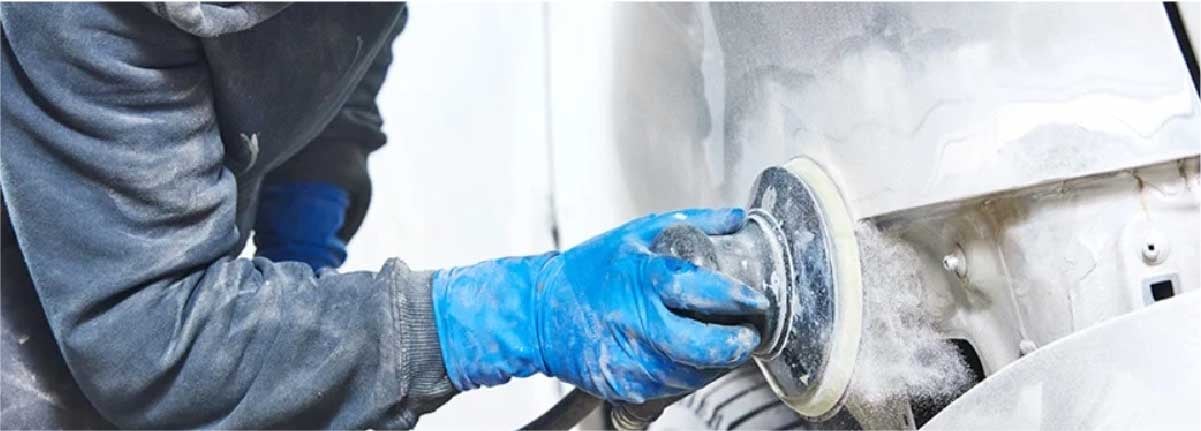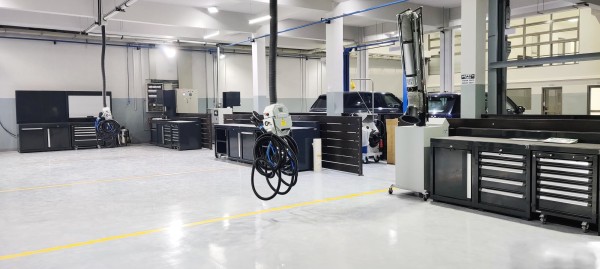 Equipping a working area with a dust extraction system is a necessary choice, especially in the manufacturing and materials processing industries, where sanding works are processed frequently.
Equipping a working area with a dust extraction system is a necessary choice, especially in the manufacturing and materials processing industries, where sanding works are processed frequently.
During these operations a large amount of dust and fine particles, potentially harmful to the health of the technicians, are generated; that could lead to serious consequences as well as cause work quality, productivity and efficiency to suffer.
How does a sanding dust extraction system work? Why is it necessary? Find out more in today's article!
How dust extraction systems work
Dust extraction systems are designed to capture and remove fine particles generated during the sanding process, thus avoiding the exposure of workers to any harmful substances.
During the sanding process, the plant extracts the air containing the dust, generated by the sanded material directly from the source, so that the particles are not spread into the environment. Extracted air is then conveyed through the ventilation systems within the plant itself.
Once inside the system, it goes through high-efficiency filters that capture the finest and most harmful particles. The filters are designed to trap particles to ensure that only clean air is released into the environment.
It is important to note that dust extraction system have to be designed and sized correctly to adapt to the environment and the sanding process specific needs. This is the only way to ensure a proper extraction and thus a healthy and productive working environment.
Why dust extraction systems are essential inside companies
Installing a sanding dust extraction system offers numerous advantages to companies.
A dust extraction system is essential to ensure regulatory compliance. Occupational health and safety laws require companies to take appropriate measures to control exposure to harmful substances in the working environment. Dust extraction systems enable companies to meet these regulatory requirements, avoiding legal sanctions and protecting their reputation.
In addition to occupational safety and regulatory compliance, plants have a positive impact on company productivity. High levels of dust in the air can compromise the efficiency of work activities, slowing down machines and damaging the tools used by technicians. Through the use of efficient systems, such inconveniences can be minimized, ensuring a cleaner and more functional working environment. This results in increased productivity and reduced downtime.

How to choose the best extraction system
When choosing the most suitable dust extraction system, it is essential to consider several factors. One of the first aspects to consider is the sizing of it. This process involves determining the amount and type of dust to be extracted, as well as the size of the area in which the system will be installed.
In addition, the choice of fine dust filters is a crucial element in plant design. Filters are responsible for capturing and removing fine particles in the air, ensuring a clean and safe working environment. It is important to select effective filters that meet industry-specific requirements and ensure the highest level of filtration.
Another important aspect is the choice of centrifugal fans. This equipment is fundamental for the correct functioning of the extraction system, as it generates the necessary air flow to capture the dust and convey it to the filters. It is important to select fans with appropriate characteristics for the system, taking into account the required air volumes and the pressures needed to ensure a proper extraction.
Contacting experienced, qualified professionals is crucial to ensure that you make the best choice and get an efficient and safe extraction system.
WORKY creates customized projects, tailored to the needs and requirements of the individual customer, analyzing each case in depth and designing ad hoc solutions that achieve the desired result.
If you wish to renovate your company or design it from the ground up, book a free, personalized consultation! Our technicians are at your disposal, without obligation.



